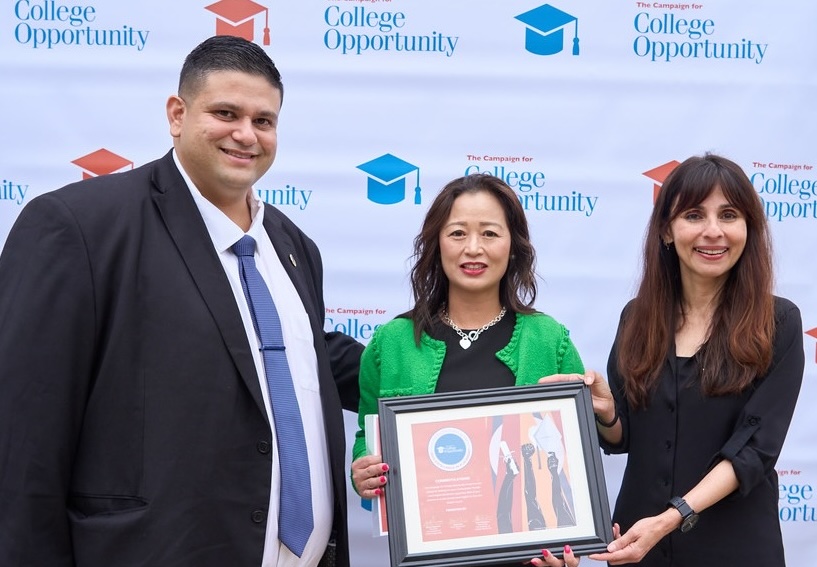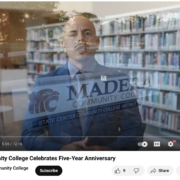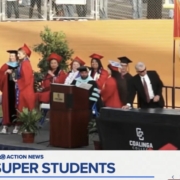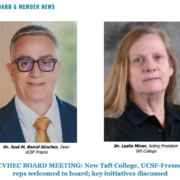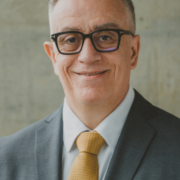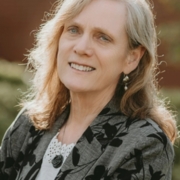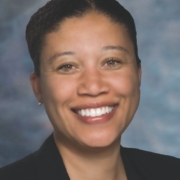Dr. Lena Tran, Yosemite Community College District interim chancellor, in 2023 as president of Columbia College when it was named a Champion for Excelling in Equitable Course Placement by the Campaign for College Opportunity with Dr. Sonya Christian, California Community Colleges chancellor (right), and Paul Medina of CCO.
Experienced leader poised to advance student success
and workforce development across YCCD
Dr. Lena Tran was named interim chancellor of the Yosemite Community College District (YCCD), which oversees Columbia College in Sonora and Modesto Junior College in Modesto. Her appointment was approved by the YCCD Board of Trustees May 14 meeting.
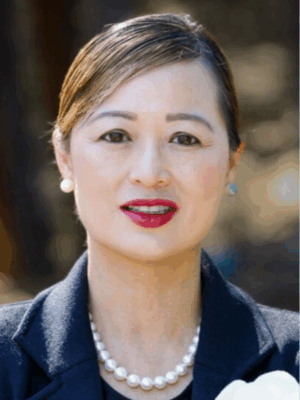 Dr. Tran has served as president of Columbia College since March 2022, when she also began serving on the Central Valley Higher Education Consortium Board of Directors representing the college in that capacity. She will continue to serve on the board as YCCD chancellor.
Dr. Tran has served as president of Columbia College since March 2022, when she also began serving on the Central Valley Higher Education Consortium Board of Directors representing the college in that capacity. She will continue to serve on the board as YCCD chancellor.
At Columbia, Dr. Tran championed workforce development, student success and strategic partnerships with local industry and education partners. Prior to joining the North Valley college located in Sonora, she held executive roles at San Jose City College and Evergreen Valley College, where she was known for her innovation in program development and her strong industry ties with companies such as Microsoft, Google, Honda, and Apple.
“Dr. Tran’s proven leadership and deep understanding of student needs make her exceptionally qualified to serve as Interim Chancellor,” said Board President Dr. Milton Richards. “She has consistently demonstrated a commitment to improving access to education, developing workforce pipelines, and enhancing student success across the district. Under her leadership, Columbia College has earned national recognition for its academic and career programs, expanded strategic partnerships, and climbed in national rankings. Her vision and ability to deliver measurable results make her the right person to guide the District during this transition.”
During her tenure at Columbia College, Dr. Tran expanded high-impact academic and career pathways while emphasizing equity, access, and student-centered services. She also prioritized support for faculty and staff, increasing professional development and building collaborative partnerships throughout the region.
“I am honored and humbled to serve as interim chancellor of this incredible district,” said Dr. Tran. “I look forward to working with our dedicated trustees, faculty, staff and community partners at both Modesto Junior College and Columbia College to create a future where every student has the opportunity to thrive. Together, we will strengthen our institutions, expand student support services and increase resources through fundraising and grant development.”
Tran’s academic background includes a Doctorate in Education in Organizational and Leadership Development from the University of San Francisco, an MBA from Seton Hall University, and a Bachelor’s degree in International Business from Montclair State University. She is also a former Fulbright Scholar and recipient of numerous leadership awards, including recognition as one of the Silicon Valley Business Journal’s “Top 40 Under 40.”
Dr. Tran succeeds Chancellor Henry Yong, who served the district from 2017 until his retirement in June.
See YCCD press release.


